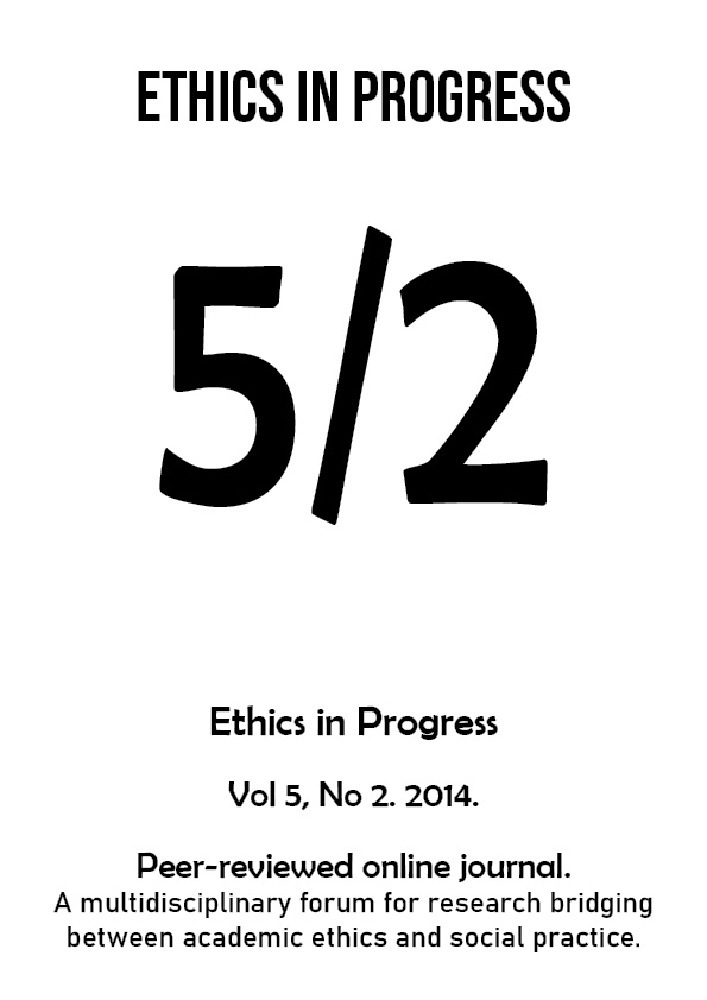Abstract
A review of literature revealed that cross-cultural research had not addressed the topic of ethical decision-making definitions (EDM), environmental factors and EDM models all of which could influence ethical decision-making especially within higher education. The present research study examined ethical decision-making, specifically how it was defined and its process. Then environmental factors were identified by experts as being influential to the process of EDM within higher education in Poland. The research provided focuses mainly on EDM and cultural aspects as related to Poland and higher education. In the conclusion, results were compared to a parallel study that focused on ethical decision-making within higher education in the U.S. This exploratory study used the Delphi research technique to identify an EDM definition that leaders use to make ethical decisions and identify the environmental factors that influence their decisions as well as an EDM model within Poland
References
Bandura, A. 1977. Social Learning Theory. Upper Saddle River, NJ: PrenticeHall, Inc.
Bartlett, D. 2003. “Management and Business Ethics: A Critique and Integration of Ethical Decision-Making Models.” British Journal of Management 14(3): 223-235.
Blank, R. 2012, June 20. Remarks at U.S.-Poland Business Summit Closing. Warsaw: Poland. Retrieved from http://www.commerce.gov/news/acting-secretaryspeeches/2012/06/20/remarks-us-poland-business-summit-closingwarsaw-poland.
Brown, M. E. & Treviño, L. K. 2006. “Ethical Leadership: A Review and Future Directions.” The Leadership Quarterly 7(6): 595-616.
Camp, W. G. 2001. “Formulating and Evaluating Theoretical Frameworks for Career and Technical Education Research.” Journal of Vocational Education Research 26(1): 1-13.
Carrithers, M. 1992. Why Humans Have Cultures: Explaining Anthropology and Social Diversity. London: Oxford University Press.
Carroll, A. B. 2004. “Managing Ethically with Global Stakeholders: A Present and Future Challenge.“ The Academy of Management Executive 18(2): 114-120. Retrieved from http://www.jstor.org/stable/4166070.
Ciulla, J. B. 1998a. Introduction. In Cuilla, J. B. (Ed.), Ethics, the Heart of Leadership. Westport, CT: Quorom Books: xv-xix.
Clayton, M. J. 1997. Delphi: “A Technique to Harness Expert Opinion for Critical Decision-Making Tasks in Education.” Educational Psychology 17(4): 373-386.
Cohen, J. R., Pant, L. W., & Sharp, D. J. 2001. “An Examination of Differences in Ethical Decision-Making Between Canadian Business Students and Accounting Professionals.” Journal of Business Ethics 30(4): 319-336.
Creswell, J. W. 2009. Research Design: Qualitative, Quantitative, and Mixed Methods Approaches (3rd ed.). Los Angeles, CA: Sage Publications.
Cuhls, K. 2011, October. Delphi Method. Retrieved from United Nations Industrial Development Organization web site: http://www.unido.org/fileadmin/import/16959_DelphiMethod.pdf.
Dubinsky, A. J. & Loken, B. 1989. “Analyzing Ethical Decision-Making in Marketing.” Journal of Business Research 19(2): 83-107.
Ferrell, O. C. & Gresham, L. G. 1985. “A Contingency Framework for Understanding Ethical Decision-Making in Marketing. Journal of Marketing 49(3): 87-96. Retrieved from http://www.jstor.org/stable/1251618.
Gladwell, M. 2000. The Tipping Point: How Little Things Can Make a Big Difference. Boston: Little, Brown and Company.
Hatcher, T. & Aragon, S. R. 2000. “A Code of Ethics and Integrity for HRD Research and Practice.” Human Resource Development Quarterly 11(2): 179-185.
Helmer, O. 1975. “Forward.” In H. Linstone, A. & Turnoff, M. (Eds.), The Delphi Method: Techniques and Applications. Reading, MA: Addison-Wesley: xix –xx.
Hunt, S. D. & Vitell, S. 1986. “A General Theory of Marketing Ethics.” Journal of Macromarketing 6(1): 5-16.
Jackson, T. 2001. “Cultural Values and Management Ethics: A 10-Nation Study.” Human Relations 54(10): 1267-1302. Retrieved from http://hum.sagepub.com/content/54/10/1267.
Jones, T. M. 1991. “Ethical Decision-Making by Individuals in Organizations: An Issue-Contingent Model.” The Academy of Management Review 16(2): 366-395. Retrieved from http://jstor.org/stable/258867.
Loo, R. 2002. “The Delphi Method: A Powerful Tool for Strategic Management.” Policing 25(4): 762-769.
Martin, G. S., Resick, C. J., Keating, M. A., & Dickson, M. W. 2009. “Ethical Leadership Across cultures: A Comparative Analysis of German and US Perspectives.” Business Ethics: A European Review 18(2): 127-144.
“Poland’s Universities in the Red as Student Numbers Decline.” 2013, Aug. 30. TheNews. Retrieved from www.thenews.pl/1/12/Artykul/145785,Polands-universities-in-thered-as-student-numbers-decline.
Polish-American Chamber of Commerce of the Southeast United States. 2013, March 6. Retrieved from www.pacc-south.com.
Resick, C. J., Hanges, P. J., Dickson, M. W., & Mitchelson, J. K. 2006. “A CrossCultural Examination of the Endorsement of Ethical Leadership.” Journal of Business Ethics 63(4): 345-359.
Rest, J. R. 1986. Moral Development: Advances in Research and Theory. New York: Praeger.
Schein, E. H. 1990. “Organizational Culture.” American Psychologist 45(2): 109-119.
Sen, A. & Vinze, A. S. 1997. “Understanding the Complexity of the Model Formulation Process: A Protocol Analysis Approach.” Decision Sciences 28(2): 443-473.
Shapiro, J. P. & Stefkovich, J. A. 2011. Ethical Leadership and Decision-Making in Education: Applying Theoretical Perspectives to Complex Dilemmas (3rd ed.). New York: Routledge.
Sheets, C. A. 2012, October 26. “America Bets on a New European Economic Partner: Poland.” International Business Times. Retrieved from http://www.ibtimes.com/america-bets-new-european-economicpartner-poland-852747#.
Starratt, R. J. 2004. Ethical Leadership (1st ed.). San Francisco, CA: Jossey-Bass.
Stewart, D. W., Sprinthall, N., & Siemienska, R. 1997. “Ethical Reasoning in Time of Revolution: A Study of Local Officials in Poland.” Public Administration Review 57(5): 445-453. Retrieved from http://www.jstor.org/stable/3109991.
Tarter, C. J. & Hoy, W. K. 1998. “Toward a Contingency Theory of DecisionMaking.” Journal of Educational Administration 36(3): 212-228.
Thieme, J. K. 2012, June 24. Higher Education Challenges of the 21st Century Poland, Europe, USA [PowerPoint slides]. Retrieved from http://amcham.pl/file/pdf/j_thieme_amcham_bullet_presentation_5_03_2009.pdf?PHPSESSID=45caff5e298418b19a7068851714dffa.
Treviño, L. K. 1986. “Ethical Decision-Making in Organizations: A PersonSituation Interactionist Model.” The Academy of Management Review11(3): 601-617. Retrieved from http://www.jstor.org.prox.lib.ncsu.edu/stable/258313.
Treviño, L. K. & Youngblood, S. A. 1990. “Bad Apples in Bad Barrels: A Casual Analysis of Ethical Decision-Making Behavior.” Journal of Applied Psychology 75(4): 378-385.
Valentine, S., Godkin, L., Cyrson, E. & Fleischman, G. 2006. “Perceived Ethical Values and Small Business Problems in Poland.” Business Ethics: A European Review 15(1): 76-85.
Valentine, S. R. & Rittenburg, T. L. 2007. “The Ethical Decision-Making of Men and Women Executives in International Business Situations.” Journal of Business Ethics 71(2): 125-134.
Ziglio, E. 1996. “The Delphi Method and Its Contribution to Decision-Making.” In Adler, M. & Ziglio, E. (Eds.), Gazing Into the Oracle: The Delphi Method and Its Application to Social Policy and Public Health. Bristol, UK: Jessica Kingsley Publishers, pp. 3- 33.




